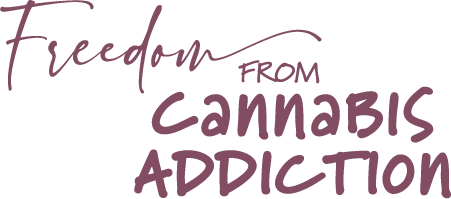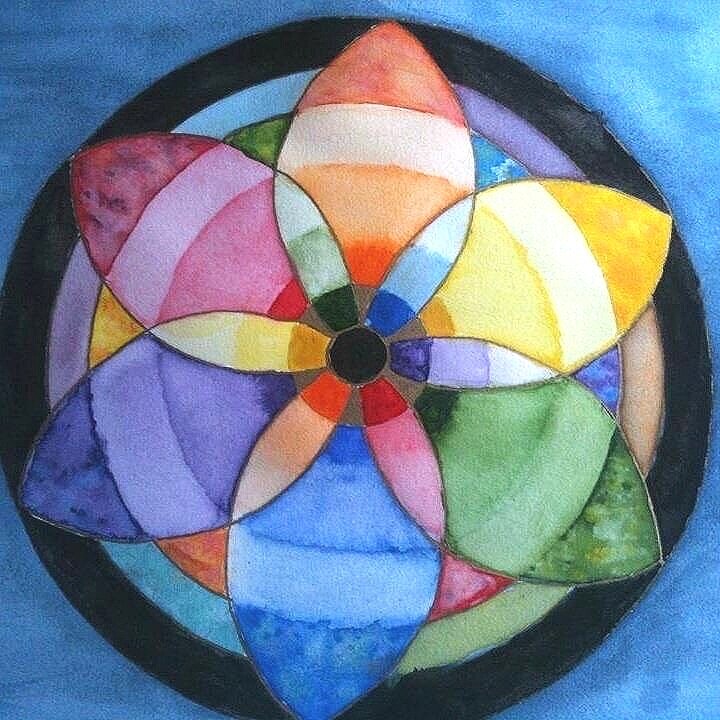
At the Crossroads: Facing My Cannabis Addiction and Bipolar Disorder
By Elle B.
Weed was my first love. It instantly evaporated my anxiety and helped control my stress. I used it to be creative, and I felt like it really helped me perform and write well. It was a good thing for me at first, like a happy pill. When I wasn’t using it, I went back to a more painful existence with more struggles. I knew it wasn’t perfect, but it was helping me in a way, and it was fun. And it might have been the first time in my life that I felt like I was having fun with other people. But, as time went on, I realized that I was relying on it more and started to notice that my anxiety was getting worse, and I was starting to get some depression.
In college, I realized I was experiencing some more serious difficulties, so I went to seek help for the first time from psychiatry services. That intervention, an anti-anxiety/antidepressant med, was helping. But I also started to notice that I was relying on weed and alcohol more heavily than I was comfortable with and I joined a harm reduction therapy group, which did really help a lot. Through the group, I learned to start expressing my feelings about my life and my struggles with weed. We were encouraged to put in place strategies to use less or only use in situations that weren’t as harmful as what we were currently doing. At the time, I was trying to reduce harm by lowering the amounts I was taking and only using during certain times of the day; for example, I tried to smoke after school instead of before attending or teaching a class. As I kept attending the harm reduction group and failing to stick to my goals, I knew for sure that I was starting to lose control of when I would smoke marijuana and that I was probably an addict.
When I graduated, I continued to do very well, at least on the surface. Much later, I learned that 12-step programs say high-functioning addicts live under the “fantasy of functionality.” That fully describes where I was at. I was looking really good on paper and I was high achieving; everybody thought I was doing great (or so I thought). I continued that fantasy for years after that, but I was really struggling inside. I knew I was an addict. I knew that I had some sort of mood disorder, probably depression. And I had other things going on in my life that were stressful.
It was difficult at that time in my life, but I did stick to the more traditional medical interventions and they were sort of working for me. But I couldn’t imagine my life without drinking and smoking weed. Part of that was just because I built my whole social network around that stuff. I would throw parties and that’s what we would be doing at the parties. I was hanging out with people who were older than me and I kind of wanted to impress people. It was around that time when I started to really become addicted to weed with daily use and really become depressed. I think long-term weed smoking and mood issues went hand in hand for me. The chronic pot use really exacerbated my depression and pushed me up into hypomania, if I used the right strain.
After experiencing a serious episode of depression, I went back to the psychiatrist, and we got some different antidepressants on board plus one-on-one therapy. I’m not sure if this is a common thing, but sometimes when a patient exhibits depression and you give them certain antidepressants, the medication can bump them up into a hypomanic or manic state. That happened to me, and that’s how I was diagnosed with bipolar 2 and started a mood-stabilizing medication. The marijuana use was just always there and probably getting worse. I had some acute stressors in my life, and I experienced some scary moments of rage. I had an accident where I hurt myself and it wasn’t intentional, but it was very uncharacteristic of me. I just felt things were kind of out of control. I saw the doctor again and they diagnosed me with bipolar 1. At that time, I was on two mood stabilizers, antidepressants, and anti-anxiety medications. It helped me quite a bit; I managed to avoid hospitalization and other serious consequences. There are a lot of problems with marijuana use and medications, but one is compliance. Even if you only miss a dose once or twice a week, that’s a big deal, and I hear they do not work as well if you drink or smoke while taking them. At that time, I was not doing a good job of being compliant.
In general, I was having serious problems with memory, with cognitive function. I was having a really hard time communicating with others. I wouldn’t know what to say. I couldn’t express myself. A lot of the times I was just quiet, and I was amongst these very smart people, I just felt like I couldn’t keep up. I couldn’t learn and remember, and I thought everybody else could. I felt like I was disabled in a way and I know it was the weed.
And still, I did just fine; I finished grad school. Some really awful things happened in my life that were very traumatic, but I got through them. The thing is, smoking pot really prevented me from feeling my emotions and accessing those things like grief and happiness and everything. I wasn’t able to express the full range of human emotions and that’s how I wanted it. It was too painful for me to get through the day without tamping down those emotions with weed. But what that meant is I sacrificed emotions like love, and it just kind of cuts everything to a narrow range of feeling. I thought I was okay and happy, but I really wasn’t. It wasn’t a human existence. It was limited.
I tried to keep going. I got a job that I was pretty happy with, but the weed use just kept getting worse, and it was a huge source of anxiety for me. I was doing things to get the weed that I never thought I would have done, crazy things. And it was really hurting my performance at work and in life. I was deteriorating physically because I didn’t have the desire or the ability to go out and go for walks or just do anything. I had a binge eating disorder that went rampant and I gained a lot of weight. So not only were things just crumbling physically, mentally, and cognitively, but I felt totally trapped. There was no way out, I was spiritually bankrupt, and I had nothing I could hold on to. I had no hope, really.
The craziest thing is that even then, I looked totally fine. Besides some of the physical aspects, on the outside, I looked like I was achieving. But the social circle that I had in college, great people that I felt awesome being with, had shrunk down to two or three people who were all enabling each other. My world was very small at that point. Basically, everything I’d had I had lost.
I remember the point when I surrendered. I wanted to change, but I didn’t know how. I decided to check myself into rehab. They put me in a group with other “dual diagnosis” folks—people who had substance use disorder and mood disorder(s)—and I started learning that my lot in life was not unique. They started giving me information in a sort of framework for how to change. One of the things that they taught me was that addiction is a disease. It’s nothing to be ashamed of. And there are certain things you must do to recover and that you can heal from it. One of those things was they pretty much required you to go to outside 12-step program meetings for your drugs of choice. That’s when I learned about Marijuana Anonymous (MA).
The 12-step program, at first, mainly gave me a sense of community and the knowledge that other people were struggling with this problem, and that there were other people who seemed to be recovered and happy. And it gave me tremendous hope that I could do that as well if I followed what they had suggested. They talk about the recommended 12 steps, which I think are really important to go through. There is sort of a transformation in the personality that happens once you’ve gone through that whole thing. It really cleans up your life and gives you a fresh start. Working with a sponsor to do those steps and to be supported in my life has been really important to me, as well as sponsoring other people to help them recover. I’ve always been into mentorship, so that fit really well into my life, and doing things like that really improve my self-esteem. There’s plenty of opportunities for service within each meeting, making sure each meeting happens. At a higher level of organization, called the District, you can also have service positions there to maintain the function of the organization.
Now, I have a huge community of friends that I honestly never thought I would be friends with: a bunch of addicts. But these are recovering addicts and they’re not all perfect. And I’m not perfect, but I think we all have a growth mindset. We have a really great time together and we support each other. It’s been tremendously valuable in my life, these days going to meetings a couple of times a week, where I get to share what’s going on with me in my life. I get to share my knowledge of how I recovered, give some encouragement to people who are new, and engage with those people and help them out. So really it just makes you feel so good to be a part of that community.
At first, I knew it was going to take on the order of several months to a year to start feeling better. That’s what they told me to expect. Because I was being active and I started imposing structure on my life, I did begin feeling better. I was doing something about my problem, taking action. I would say that my brain still felt very foggy. It was just a continuation of the cognitive problems that I was having with processing and working memory. That started to get a little bit better at six months, and I think by maybe a year and a half, I felt almost fully better. And that was huge for me because that was one of my biggest concerns. I’d been scared that I was just losing my mind and my capacity to think, and just have a healthy brain, and now I’m feeling totally recovered. There’s a huge capacity for the brain to heal from addiction.
In terms of mood, I had to work with my psychiatrist on the medication situation – what meds to take and what doses – and I soon became fully compliant (taking my meds exactly as prescribed) because I knew how important that was. Within two years of quitting substances, I was able to eliminate some of my meds and reduce the doses of others. My bipolar and anxiety symptoms slowly disappeared, and I had a much better handle on my eating disorder.
If you’re in the middle of your addiction, or if you’re new to sobriety, it may feel like this pain is never going to go away, but if you stick with it, your brain and body will heal. That’s a promise.

